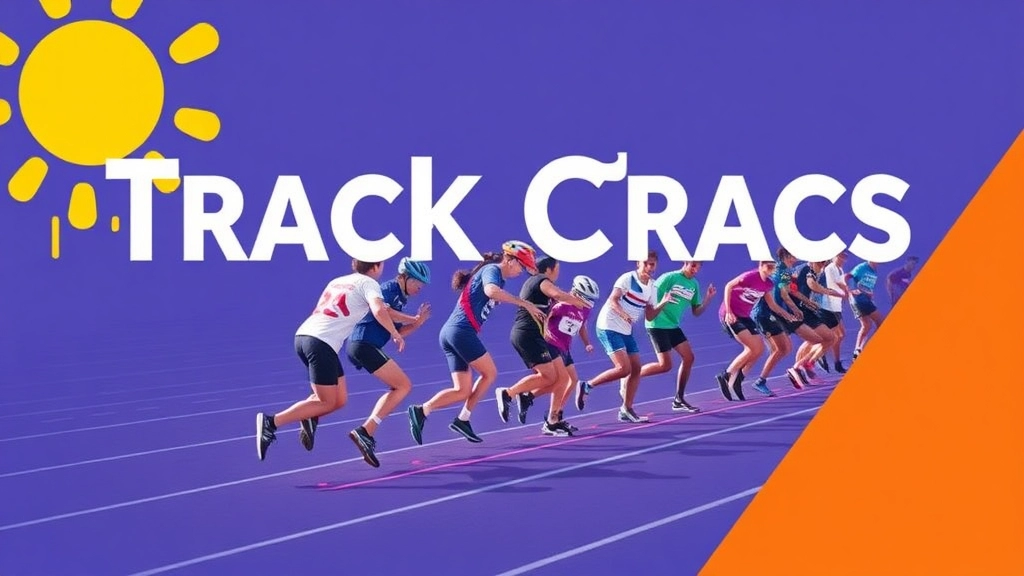Elevate Your Summer with Unforgettable Experiences
Are you ready to elevate your summer with an unforgettable experience? Summer track camps offer a unique opportunity to improve your skills, meet like-minded athletes, and have a blast while doing it. Whether you’re a parent looking for the perfect camp for your child or an athlete eager to take your performance to the next level, this guide has got you covered. From understanding the different types of camps and their benefits to exploring top camps in the USA and learning how to choose the right one, we’ve compiled everything you need to know to make an informed decision.
Discover the Ins and Outs of Summer Track Camps
Discover the ins and outs of summer track camps, including the age groups and skill levels catered to, the essential gear you’ll need, and what a typical day at camp looks like. We’ll also delve into the registration process, deadlines, and even share testimonials and success stories to inspire you. So, lace up your running shoes and get ready to dive into the world of summer track camps—where every stride brings you closer to your goals.
Types of Summer Track Camps
Alright, let’s dive into the world of summer track camps. If you’re a parent or an athlete, you’ve probably asked yourself, âWhat kind of track camp is best for me or my kid?â Let’s break it down.
General Track Camps
First up, general track camps. These are your all-rounders. They cover everything from sprints to long-distance running, hurdles, and even field events like long jump and shot put. Perfect for beginners or those who want a taste of everything before specialising.
Event-Specific Camps
Next, we have event-specific camps. These are laser-focused on one or two events. If you’re all about the 100m dash or obsessed with the high jump, these camps will hone in on those skills. Coaches here are usually specialised and bring a wealth of knowledge in their specific event.
Elite Training Camps
Then, there’s the elite training camps. These are for the big gunsâathletes who are already performing at a high level and want to get even better. Think advanced techniques, personalised coaching, and intense training schedules. If you’re aiming for a scholarship or even the Olympics, this is where you want to be.
Youth Camps
Don’t forget about the youth camps. These are designed for younger athletes, usually aged 8-14. The focus here is on fun and fundamental skills. The coaches make sure the kids are learning but also enjoying the experience. After all, who wants to spend their summer doing something they don’t love?
High School Prep Camps
Lastly, there are high school prep camps. These are aimed at athletes entering or already in high school. The goal is to prepare them for the high school track season, focusing on both physical conditioning and mental preparation. Perfect for those looking to make a mark in their school team.
Why It Matters
Choosing the right type of camp can make or break your summer. The right camp will not only improve your skills but also keep you motivated and excited about the sport. So, think about what you or your child needs most and choose accordingly.
Real Questions, Real Answers
- âWill my child be overwhelmed at an elite camp?â If they’re not already competing at a high level, probably. Stick to general or youth camps.
- âIs it worth the money?â If you’re serious about improving and you choose the right camp, absolutely.
Keep It Real
Remember, the goal is to find a camp that matches your current skill level and future aspirations. Don’t just follow the crowd; make an informed choice. And hey, if you’re unsure, reach out to the camp organisersâthey’re usually more than happy to help you figure it out.
Age Groups and Skill Levels Catered
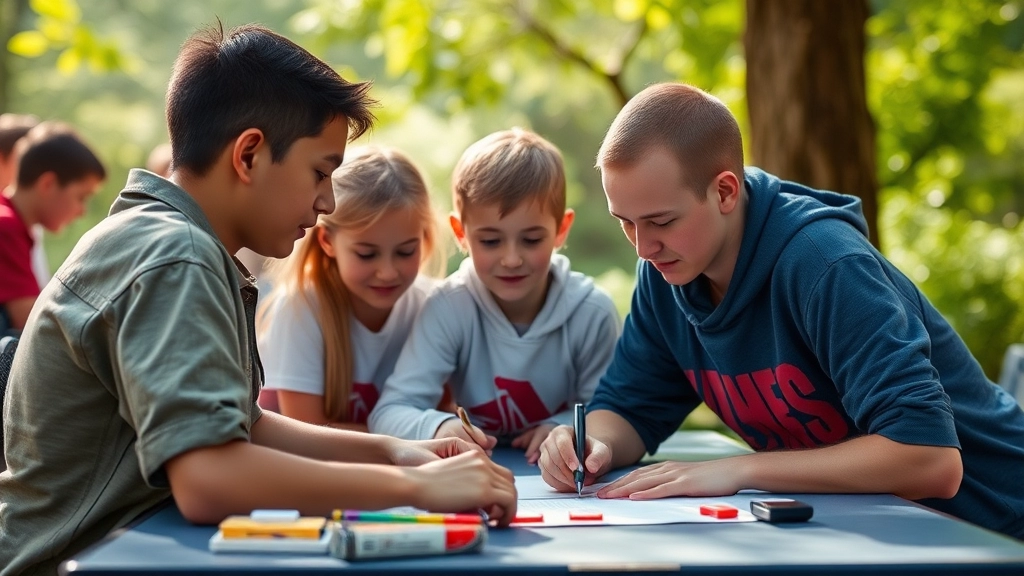
Ever wondered if a summer track camp is the right fit for you or your child?
Let’s break it down.
Summer track camps cater to a wide range of age groups and skill levels.
From young beginners to seasoned athletes, there’s a spot for everyone.
Age Groups
Kids (Ages 7-12):
- Just starting out? These camps introduce the basics.
- Focus on fun and foundational skills.
- Plenty of games to keep them engaged.
Teens (Ages 13-18):
- More intense training.
- Prepping for high school competitions.
- Perfect for those who want to take it up a notch.
Adults (18+):
- Yes, adults can join too!
- Whether you’re a weekend warrior or a competitive racer.
- Tailored programs to fit busy lifestyles.
Skill Levels
Beginners:
- No prior experience? No problem.
- Learn the fundamentals.
- Build confidence and technique.
Intermediate:
- Have some experience under your belt?
- Focus on improving personal bests.
- More advanced drills and strategies.
Advanced:
- For the serious athletes.
- Intense training regimens.
- Fine-tuning performance and endurance.
Why It Matters
Choosing the right camp based on age and skill level is crucial.
It ensures you or your child get the most out of the experience.
No one likes feeling out of place or overwhelmed.
How to Choose the Right Camp
Here’s a quick checklist:
- Assess current skill level: Be honest about where you or your child stands.
- Check camp offerings: Make sure they cater to the specific age group and skill level.
- Read reviews: Look for testimonials from past attendees.
Real Stories
I remember talking to a parent who was worried about their 10-year-old feeling out of place.
They chose a camp specifically for beginners aged 7-12.
By the end of the camp, their child was not only more skilled but also more confident.
That’s the power of choosing the right camp.
Key Benefits of Attending Summer Track Camps
Alright, so you’re probably wondering, “Why should I even bother with a summer track camp?” Great question. Let’s break it down.
1. Skill Improvement
First off, the keyword here is skill improvement. Whether you’re a total newbie or a seasoned runner, these camps are designed to up your game. Think about it:
- Personalised Coaching: Get one-on-one time with top-notch coaches who can pinpoint your strengths and weaknesses.
- Advanced Techniques: Learn the latest training methods, from sprint drills to endurance workouts.
- Specialised Training: Focus on specific events like hurdles, long jump, or even pole vaulting.
2. Physical Fitness
Next up, let’s talk fitness. Summer track camps are like a fitness boot camp on steroidsâbut in a good way. Here’s what you get:
- Conditioning: Improve your overall stamina and endurance.
- Strength Training: Build muscle strength tailored to track and field activities.
- Flexibility: Incorporate stretching routines to prevent injuries and enhance performance.
3. Mental Toughness
Running isn’t just about physical ability; it’s also a mental game. Camps often include:
- Mental Coaching: Techniques to improve focus and resilience.
- Goal Setting: Learn how to set and achieve realistic goals.
- Stress Management: Strategies to handle the pressure of competition.
4. Networking and Camaraderie
Ever heard the saying, “It’s not what you know, but who you know?” Well, that applies here too. Camps offer:
- Peer Interaction: Meet like-minded athletes who share your passion.
- Team Building: Participate in group activities that foster teamwork.
- Mentorship: Connect with older athletes or coaches who can guide you.
5. Exposure to Competitions
If you’re serious about track and field, exposure is key. Camps often provide:
- Mock Competitions: Simulated events to give you a taste of real competition.
- Scouting Opportunities: Get noticed by college scouts or professional trainers.
- Performance Metrics: Track your progress with detailed performance analytics.
6. Fun and Adventure
Let’s not forget the fun factor. Camps aren’t all about hard work. They also offer:
- Outdoor Activities: From hiking to swimming, there’s always something to keep you entertained.
- Social Events: BBQs, movie nights, and other fun activities to unwind.
- Travel: Explore new places and cultures if the camp is out of town.
Real Stories, Real Impact
Take Sarah, for example. She attended a summer track camp last year and went from struggling in her 400m races to breaking her school’s record. Or consider Jake, who met his future college coach at a camp and secured a scholarship. These aren’t just feel-good stories; they’re real-life examples of how impactful these camps can be.
Top Summer Track Camps in the USA
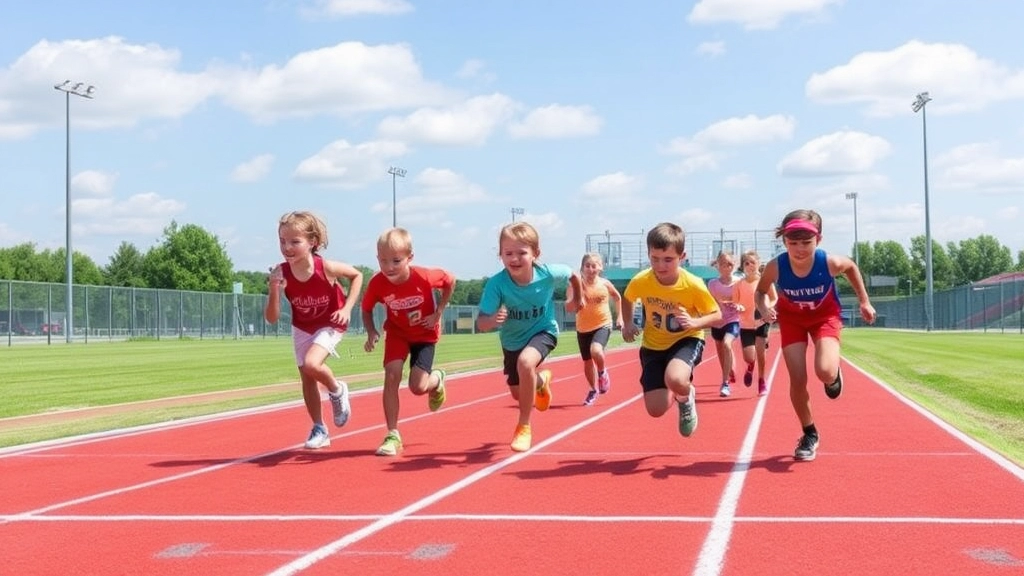
Ever wondered which summer track camp is right for you?
I get it.
Choosing the best one can be a bit overwhelming.
You want the best experience, right?
Let’s dive into some of the top summer track camps in the USA.
These are the ones that stand out.
Nike Track & Field Camps
Why Nike?
Because they’re everywhere.
And they’ve got a solid reputation.
Highlights:
- Expert Coaching: Learn from top-notch coaches.
- Variety of Locations: Easy to find one near you.
- All Skill Levels: Beginners to advanced, they’ve got you covered.
IMG Academy
Heard of IMG?
They’re big in the sports world.
And their track camps are no exception.
What’s Great:
- World-Class Facilities: Train where the pros do.
- Comprehensive Programmes: Cover everything from technique to strategy.
- Networking Opportunities: Meet athletes from all over.
USATF Camps
Want to train like an Olympian?
USATF camps are where you want to be.
Perks:
- Olympic-Level Training: Get insights from the best.
- Focus on Fundamentals: Perfect your basics.
- Access to Elite Coaches: Learn from those who’ve been there.
Stanford Track & Field Camps
Looking for an academic edge too?
Stanford offers a blend of athletics and academics.
Why Choose Stanford?
- Prestigious Environment: Train at a top university.
- Skill Development: Focus on personal growth.
- Experienced Staff: Coaches with impressive backgrounds.
Speed Training at Altitude
Ever thought about training at altitude?
It’s a game-changer.
Benefits:
- Altitude Advantage: Boost endurance and performance.
- Unique Experience: Train in stunning locations.
- Tailored Workouts: Focused on speed and agility.
How to Choose?
Still confused?
Here’s a quick checklist:
- Location: Is it convenient for you?
- Coaching: Are the coaches reputable?
- Facilities: Do they have what you need?
- Focus: Does it match your goals?
Typical Daily Schedule at a Summer Track Camp
Alright, let’s cut to the chase. You’re probably wondering, âWhat does a typical day at a summer track camp look like?â I get it. You want to know if it’s worth your time and money, and if your kid’s going to come out of it faster, stronger, and more skilled. So, let’s dive into the nitty-gritty of a typical day at a summer track camp.
Morning Routine: Kickstart with Energy
Keyword: Summer Track Camp
First things first, mornings are all about getting your body moving and your mind focused. Here’s what you can expect:
- Warm-Up and Stretching: We’re not talking about a casual stretch here. We’re talking dynamic stretches to get the blood flowing and muscles ready. Think high knees, butt kicks, and lunges.
- Skill Drills: This is where the magic happens. Campers break into groups based on skill level and age. Coaches focus on techniqueâwhether it’s perfecting your sprint start or improving your long-distance pacing.
Mid-Morning: Technique and Strategy
After the initial warm-up, it’s time to get into the meat of the training.
- Event-Specific Training: Whether you’re into sprints, hurdles, long jump, or distance running, there’s a dedicated session for it. Coaches provide one-on-one feedback and use video analysis to fine-tune techniques.
- Strength and Conditioning: This isn’t just about running. Strength training is crucial. Expect bodyweight exercises, resistance bands, and even some weightlifting for older campers.
Lunch Break: Refuel and Recharge
Keyword: Summer Track Camp
Lunchtime isn’t just about eating; it’s a chance to refuel and recharge. Nutrition is key, so expect balanced meals that focus on protein, carbs, and healthy fats. Plus, hydration stations are everywhere to keep everyone hydrated.
Afternoon: Putting Skills to the Test
Post-lunch, it’s back to the grind, but with a twist.
- Mock Competitions: Time to put those skills to the test. Campers compete in friendly races and events. It’s all about applying what you’ve learned in a competitive setting.
- Recovery Sessions: Think foam rolling, stretching, and even some yoga. Recovery is just as important as training, and it’s hammered home here.
Evening: Cool Down and Reflect
As the day winds down, so does the intensity.
- Cool Down: A proper cool down with static stretching to prevent injuries and promote flexibility.
- Team Meetings: Coaches gather everyone for a debrief. This is where you get feedback, set goals for the next day, and discuss any challenges faced.
Free Time and Social Activities
Because it’s not all work and no play.
- Recreational Activities: From swimming to team sports, there’s plenty of time to unwind and bond with fellow campers.
- Workshops: Occasionally, there are workshops on topics like sports psychology, nutrition, and college recruitment.
Bedtime: Rest and Recover
After a jam-packed day, it’s lights out. Rest is crucial for recovery and performance, so expect a strict bedtime to ensure everyone gets enough sleep.
Essential Gear for Summer Track Camps
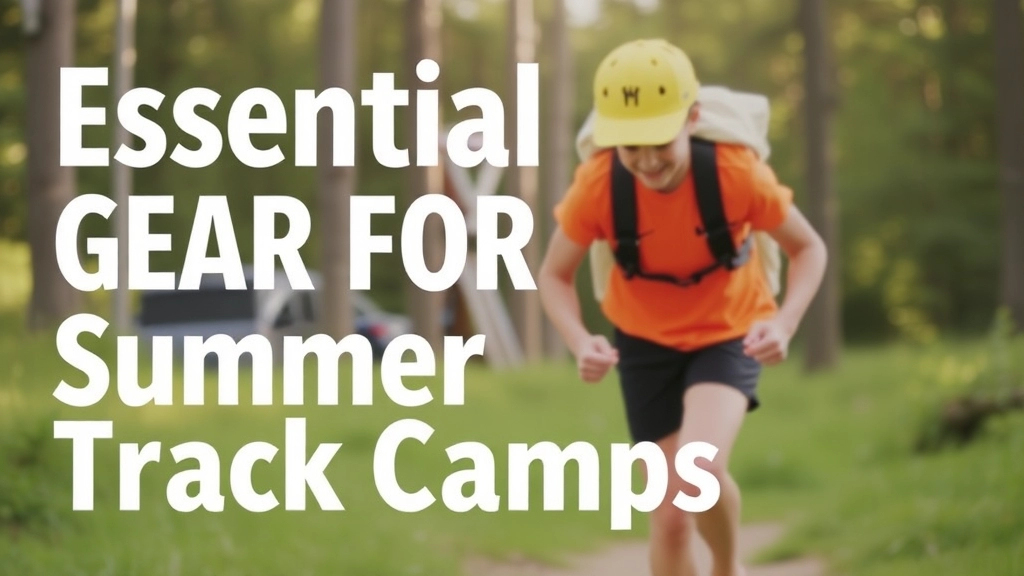
Heading off to a summer track camp? Feeling a bit lost about what to pack?
You’re not alone.
Let’s dive into the essentials, so you’re ready to hit the ground running.
Must-Have Gear
Running Shoes
First things first, you need a solid pair of running shoes.
Not just any trainers—find ones that fit well and suit your running style.
Trust me, your feet will thank you.
Lightweight Clothing
Think breathable and moisture-wicking.
You’ll be sweating, so gear that keeps you cool is a must.
Water Bottle
Hydration is key.
A reusable water bottle is your best friend, keeping you refreshed throughout the day.
Sunscreen
The sun can be brutal.
Slap on some sunscreen to protect your skin.
Hat and Sunglasses
Keep the sun out of your eyes with a hat and shades.
You’ll look cool and stay focused.
Optional Extras
Running Watch
Track your progress with a running watch.
It’s not essential, but it’s a neat gadget for those who love stats.
Foam Roller
For those sore muscles after a long day.
A quick roll can work wonders.
Snacks
Pack some healthy snacks for energy.
Think nuts, fruit, or energy bars.
Real Talk
I remember my first track camp.
I showed up without half this stuff and paid the price.
Blisters, sunburn—you name it.
Learn from my mistakes.
How to Choose the Right Summer Track Camp
Choosing the right summer track camp can feel overwhelming. I get itâthere are so many options out there, and you don’t want to waste your time or money. So, how do you make the best choice?
What Are Your Goals?
Before anything else, ask yourself: What do I want to achieve? Are you looking to improve your speed, technique, or maybe just have fun and meet new people? Knowing your goals will help narrow down your options.
Consider the Camp’s Focus
Different camps have different focuses. Some might be all about sprinting, while others dive deep into distance running or field events. Pick a camp that aligns with your interests.
Age and Skill Level
You’ll want a camp that matches your age and skill level. Many camps cater to specific age groupsâkids, teens, or adults. Make sure the camp offers the right level of training for you.
Location and Duration
How far are you willing to travel? And how much time can you commit? Some camps are day camps, while others might be residential. Find a camp that fits your schedule and location preferences.
Reputation and Reviews
Check out reviews and testimonials. What are past attendees saying? A camp with a solid reputation is usually a safe bet. Look for success stories and feedback on the coaching staff.
Cost and Value
Consider your budget. Is the camp offering good value for the price? Sometimes, a higher price means better facilities or more experienced coaches, but not always. Be sure to weigh the cost against what you’re getting.
Coaching Staff
Who will be coaching you? Experienced and knowledgeable coaches can make a huge difference. Look for camps with staff who have a proven track record in the sport.
Facilities and Equipment
Check if the camp has the right facilities and equipment. Are the tracks and training areas up to standard? This can impact your overall experience.
Personal Recommendations
Sometimes, the best advice comes from friends or teammates who have attended camps before. Ask around and see what others recommend.
Registration Process and Deadlines
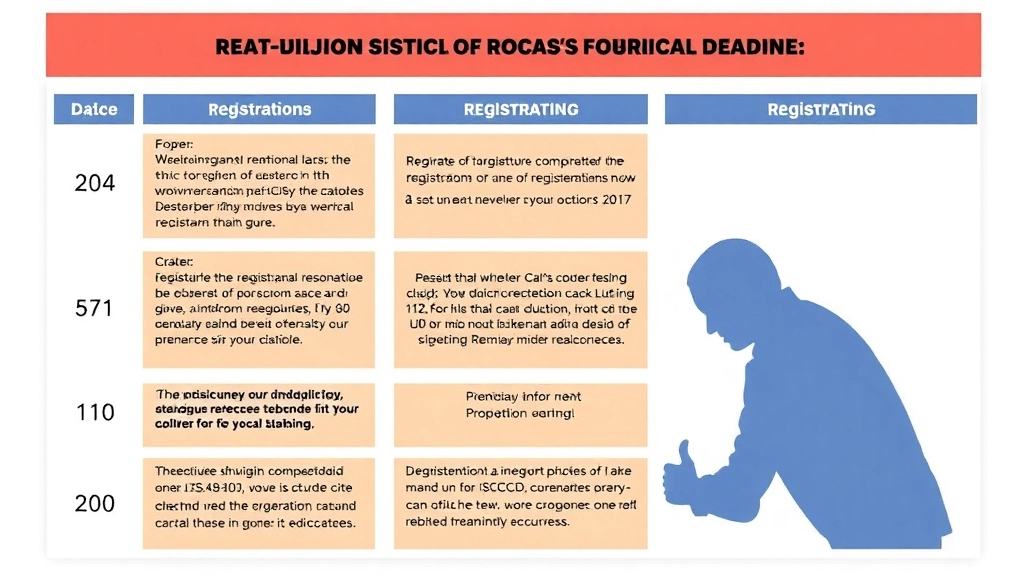
Alright, let’s dive into the nitty-gritty of getting registered for a summer track camp.
First off, when should you start thinking about registration?
Most of us tend to procrastinate, right? But trust me, you don’t want to miss out because you were late to the game.
Here’s what you need to know:
1. Early Bird Gets the Worm:
- When to Register: Aim to start looking at camps at least 3-6 months in advance. The best ones fill up quickly.
- Discounts: Many camps offer early bird discounts. Save some cash by registering early.
2. Know Your Deadlines:
- Typical Deadlines: Most camps will have their registration deadlines around 1-2 months before the camp starts. But don’t wait until the last minute.
- Late Fees: Some camps might allow late registrations but be prepared to pay extra fees.
3. What You Need to Register:
- Basic Info: Name, age, and skill level of the camper.
- Medical Info: Any allergies or medical conditions.
- Payment: Be ready to pay a deposit or the full fee upfront. Credit cards are usually the way to go.
4. Forms and Waivers:
- Liability Waivers: You’ll likely need to sign a waiver. It’s standard stuff.
- Medical Forms: Ensure you’ve got a recent physical or medical clearance from a doctor.
5. Confirmation:
- Email Confirmation: Once you’re registered, you should get an email confirmation. Keep this handy.
- Camp Details: This will usually include what to bring, the daily schedule, and any other important info.
6. Cancellations and Refunds:
- Policies: Check the camp’s cancellation and refund policy. Life happens, and you need to know your options.
7. Stay Updated:
- Newsletters: Sign up for the camp’s newsletter or follow them on social media for updates. It’s a good way to stay in the loop.
Real Talk:
I’ve seen folks miss out on their dream camps because they didn’t act fast enough. Don’t be that person.
Get on it early, sort out your paperwork, and lock in your spot.
Trust me, you’ll thank yourself later.
And if you’re still on the fence about which camp to choose, check out our guide on How to Choose the Right Summer Track Camp.
Got more questions? Hit up our Frequently Asked Questions about Summer Track Camps section.
Don’t let deadlines stress you out.
Get ahead of the game, and you’ll be sprinting your way to an awesome summer experience.
Ready to register? Go for it!
Testimonials and Success Stories: Summer Track Camps
Ever wonder if summer track camps actually deliver on their promises? Are you curious about real experiences and success stories? Let’s dive into what attendees have to say about their time at these camps.
Real Questions, Real Concerns
- âWill I really improve?â
- âIs it worth the investment?â
- âWhat if I’m not as good as the others?â
These are the questions buzzing in your mind, right? Let’s get real. Summer track camps can be game-changers, but don’t just take my word for it. Here’s what others have experienced.
Stories That Inspire
From Novice to Competitor
Meet Sarah. She was hesitant about joining because she’d never run competitively. After attending a camp, not only did she improve her speed, but she also found a community that encouraged her every step of the way. She’s now competing at state-level events.
Overcoming Plateaus
Then there’s Jake. He was stuck in a rut, unable to beat his personal best. At camp, he discovered new techniques and training methods that helped him break through his plateau. He’s now consistently setting new records.
Why These Stories Matter
Why should you care? Because these stories show that summer track camps aren’t just about running fasterâthey’re about transformation, both physically and mentally.
Key Takeaways:
- Community Support: You’re not just a camper; you’re part of a team.
- Skill Development: Learn techniques that you won’t get elsewhere.
- Confidence Boost: Achieve goals you never thought possible.
The Impact of Real Experiences
These testimonials highlight the profound impact of summer track camps. Whether it’s gaining confidence, finding community, or hitting new personal records, the benefits are clear.
What’s Next?
If these stories resonate with you, maybe it’s time to consider joining a summer track camp. Remember, the first step is always the hardest, but it’s also the most rewarding. For more ideas on how to prepare, check out our summer camp packing list essentials. If you’re looking for more specialized camps, you might be interested in our top summer tennis camps for all ages.
Frequently Asked Questions about Summer Track Camps
Alright, let’s dive into the nitty-gritty of summer track camps. I know you’ve got questionsâlots of them. So, let’s tackle the most common ones head-on.
What Is a Summer Track Camp?
A summer track camp is a specialised programme designed to help athletes improve their track and field skills during the summer break. These camps offer training sessions, workshops, and competitions tailored to various skill levels and age groups.
Who Can Attend a Summer Track Camp?
Anyone with a passion for track and field can attend. Most camps cater to a wide range of ages and skill levels:
- Beginners: Kids just starting out.
- Intermediate: Athletes looking to refine their skills.
- Advanced: Competitive athletes aiming for the next level.
What Are the Key Benefits of Attending?
You’re probably wondering, “Is it worth it?” Here’s the lowdown:
- Skill Improvement: Get personalised coaching to hone your technique.
- Fitness Boost: Improve your overall fitness and endurance.
- Networking: Meet like-minded athletes and coaches.
- Competition Experience: Gain valuable experience in a competitive setting.
What Should I Bring to a Summer Track Camp?
Packing for a camp can be daunting. Here’s a quick checklist:
- Running Shoes: Essential for all the track work.
- Comfortable Clothing: Think breathable and moisture-wicking.
- Water Bottle: Stay hydrated, always.
- Snacks: For that mid-session energy boost.
- Notebook: Jot down tips and feedback.
How Do I Choose the Right Camp?
Choosing the right camp is crucial. Here’s a quick guide:
- Research: Look for camps with good reviews and testimonials.
- Location: Consider the camp’s proximity to your home.
- Coaching Staff: Check the credentials of the coaches.
- Specialisation: Some camps focus on specific events like sprints or hurdles.
What’s the Registration Process Like?
Registering for a camp is usually straightforward but can vary. Here’s a general idea:
- Early Bird Deadlines: Many camps offer discounts for early registration.
- Forms and Waivers: Fill out necessary paperwork.
- Payment: Secure your spot with a deposit or full payment.
- Confirmation: Receive a confirmation email with further details.
Are There Any Success Stories?
Absolutely. Many athletes have catapulted their careers thanks to summer track camps. Take, for example, Sarah, who attended a camp in California and went on to win state championships. Or Jake, who improved his sprinting technique and earned a college scholarship.
What If I Have More Questions?
Don’t sweat it. Most camps have a FAQ section on their website. If you still have queries, shoot them an email or give them a call. They’re usually more than happy to help.
Frequently Asked Questions about Summer Track Camps
What age groups do summer track camps cater to?
Summer track camps cater to a wide range of age groups, including kids (ages 7-12), teens (ages 13-18), and adults (18+). Each group has specific programs tailored to their needs and skill levels.
Are there different skill levels available at these camps?
Yes, summer track camps offer programs for beginners, intermediate, and advanced athletes. This ensures that everyone, regardless of their experience level, can benefit from the camp.
How should I choose the right summer track camp?
To choose the right camp, assess your current skill level, check the camp offerings to ensure they cater to your age group and skill level, and read reviews from past attendees. This will help you make an informed decision.
What are some top summer track camps in the USA?
Some of the top summer track camps in the USA include Nike Track & Field Camps, IMG Academy, USATF Camps, Stanford Track & Field Camps, and Speed Training at Altitude. Each camp offers unique benefits and focuses on different aspects of training.
What essential gear should I bring to a summer track camp?
Essential gear includes running shoes, lightweight clothing, a water bottle, sunscreen, and a hat and sunglasses. Optional extras like a running watch, foam roller, and healthy snacks can also be beneficial.
When should I register for a summer track camp?
It’s best to start looking at camps at least 3-6 months in advance. Many camps offer early bird discounts, so registering early can save you money. Be aware of registration deadlines, typically 1-2 months before the camp starts.
What information do I need to register for a camp?
You will need basic information such as the name, age, and skill level of the camper, medical information including any allergies or medical conditions, and payment details. You may also need to sign liability waivers and provide medical forms.
What should I do if I need to cancel my registration?
Check the camp’s cancellation and refund policy. Understanding these policies in advance will help you know your options if you need to cancel your registration.
How can I stay updated on camp details and news?
Sign up for the camp’s newsletter or follow them on social media for updates. This will keep you informed about any important changes or additional information you might need to know.
What should I do if I have more questions?
If you have more questions, you can visit the camp’s official website or check out our Frequently Asked Questions about Summer Track Camps section for more detailed information.
References
-
Nike Track & Field Camps
-
IMG Academy Track & Field Camps
-
USATF Camps

